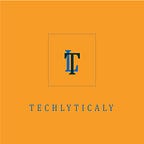Understanding Shorter Attention Spans in Today’s Generation
In an era defined by the digital revolution, the modern world presents us with an unprecedented paradox. While we have access to a wealth of knowledge and connectivity like never before, our attention spans seem to be shrinking. It’s a concern that affects individuals of all ages but is particularly pronounced among the tech-savvy younger generation. In this comprehensive exploration, we will delve into the causes, consequences, and actionable strategies to better understand and combat shorter attention spans.
The Digital Age and Shorter Attention Spans:
Our world today is a digital paradise, but it comes at a cost. With smartphones, social media, and a constant flow of information, our brains are bombarded with stimuli. As a result, the ability to sustain focused attention on a single task has become a rare skill. The phenomenon of “continuous partial attention,” where individuals constantly shift their focus between tasks, has become the norm.
The Impact on Productivity and Mental Health:
Shorter attention spans carry significant consequences. They hinder productivity, making it challenging to accomplish tasks that demand sustained focus. Moreover, they can contribute to feelings of anxiety and stress, as the constant influx of information taxes our cognitive resources.
The Neuroscience of Attention Spans:
Understanding the brain’s role in attention span is crucial. The prefrontal cortex, responsible for decision-making and impulse control, plays a pivotal role in sustaining attention. However, it can be easily overwhelmed when confronted with a barrage of digital distractions.
The Multitasking Myth:
Many people pride themselves on their ability to multitask. However, research shows that multitasking often diminishes attention span. Constantly switching between tasks divides cognitive resources, making it difficult to focus on any single activity effectively.
Strategies to Cultivate Longer Attention Spans:
1. Practice Mindfulness Meditation: Mindfulness meditation techniques can train the brain to focus on the present moment, enhancing attention span gradually over time.
2. Digital Detox: Consider scheduled breaks from digital devices to reset your attention span and alleviate digital fatigue.
3. Effective Time Management: Techniques like the Pomodoro Technique, involving short bursts of intense focus followed by breaks, can boost productivity and attention span.
4. Distraction Mitigation: Create a designated, distraction-free workspace, mute non-essential notifications, and employ website blockers to maintain focus.
5. Prioritize Sleep and Nutrition: Adequate sleep and a balanced diet are essential for cognitive function and attention span.
6. Goal Setting: Establishing specific, achievable goals for each day can provide a sense of purpose and help maintain focus.
Shorter attention spans are a natural byproduct of our digital age, but they need not be a permanent hindrance. By comprehending the root causes and ramifications of reduced attention spans and implementing practical strategies to mitigate them, we can regain control over our focus and productivity.
In a world where distractions are abundant, embracing the challenge of cultivating a more attentive mind is a rewarding endeavor. Remember that it’s not about resisting the digital age but learning to navigate it effectively while preserving the invaluable gift of focused attention.
With mindfulness, discipline, and a commitment to understanding and addressing shorter attention spans, we can thrive in an increasingly distracted world.
Written by Priyanka Rathod, Founder’s Office Techlyticaly
